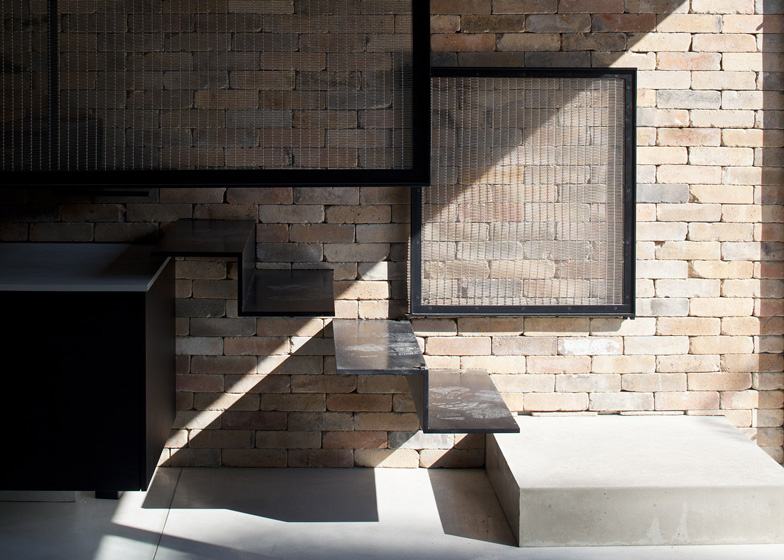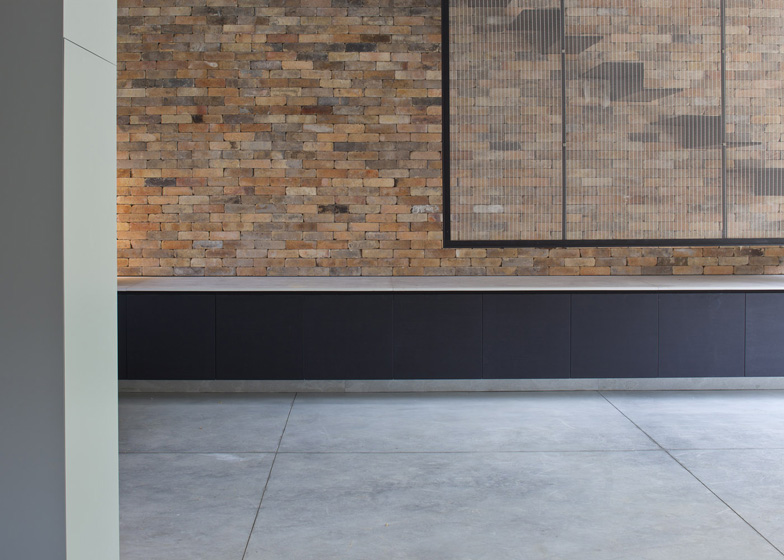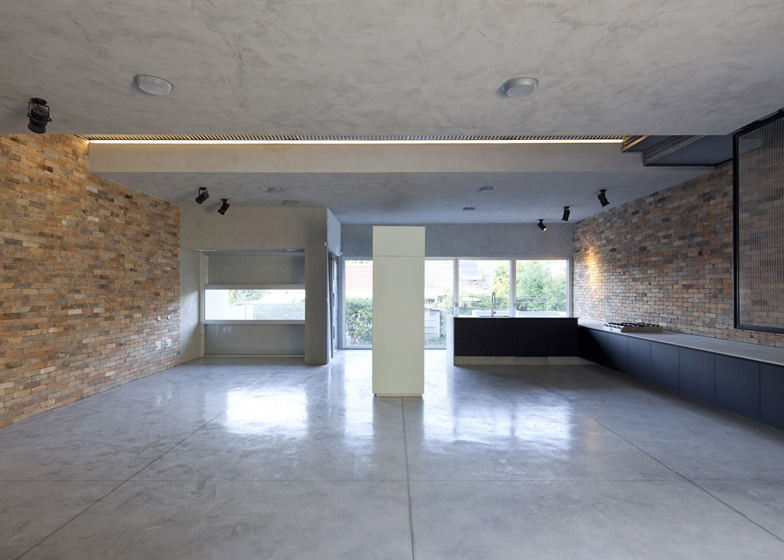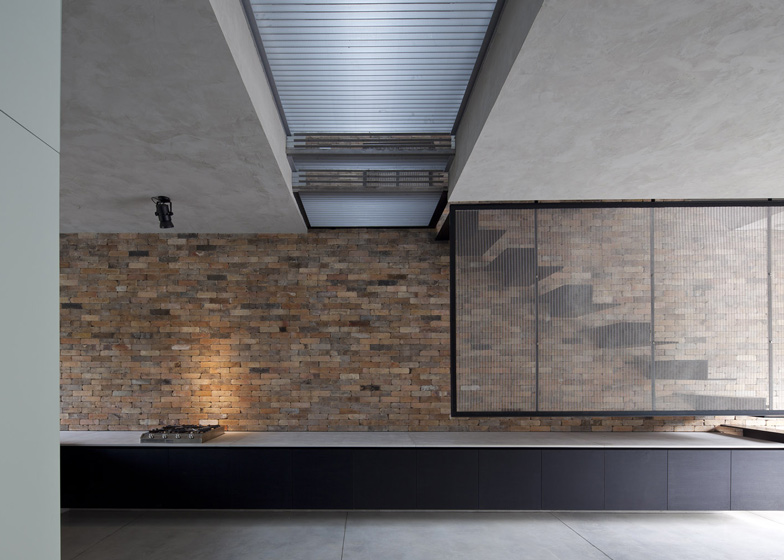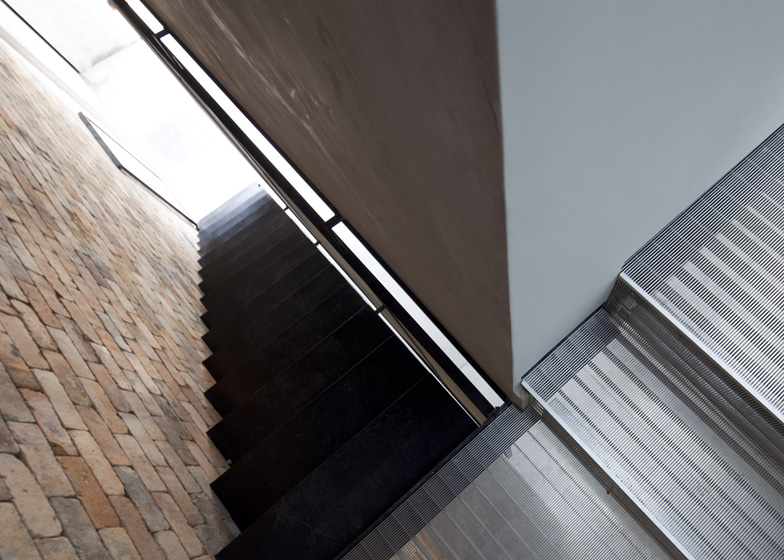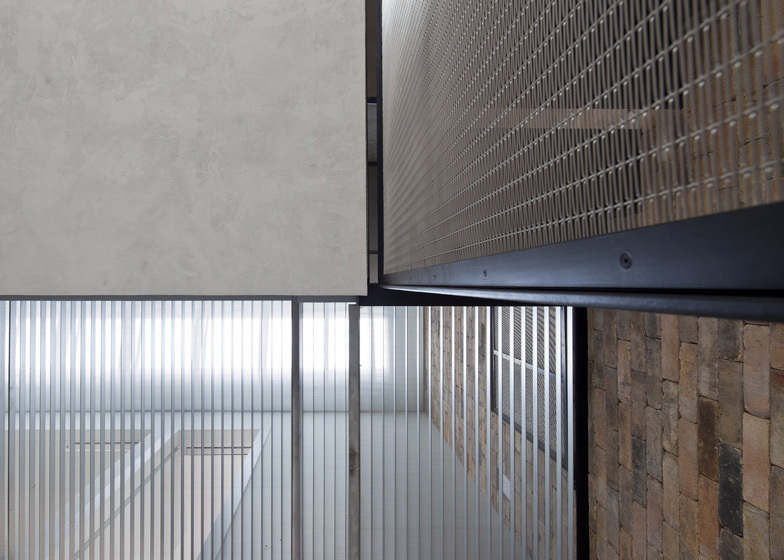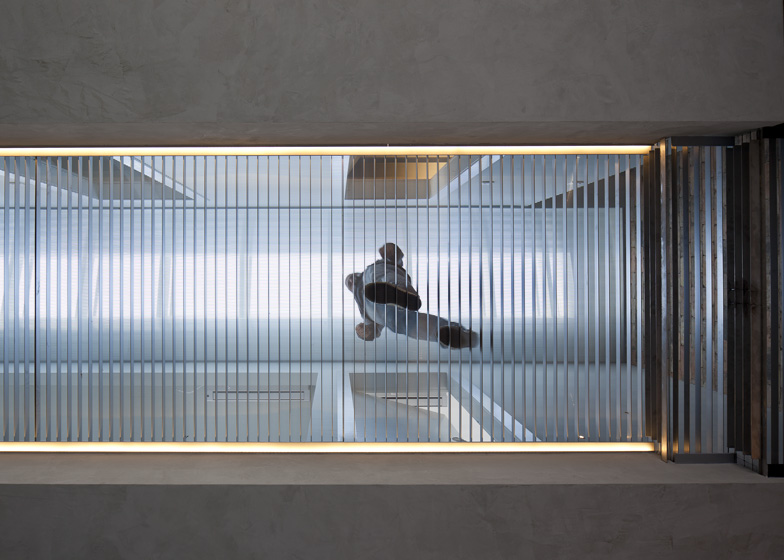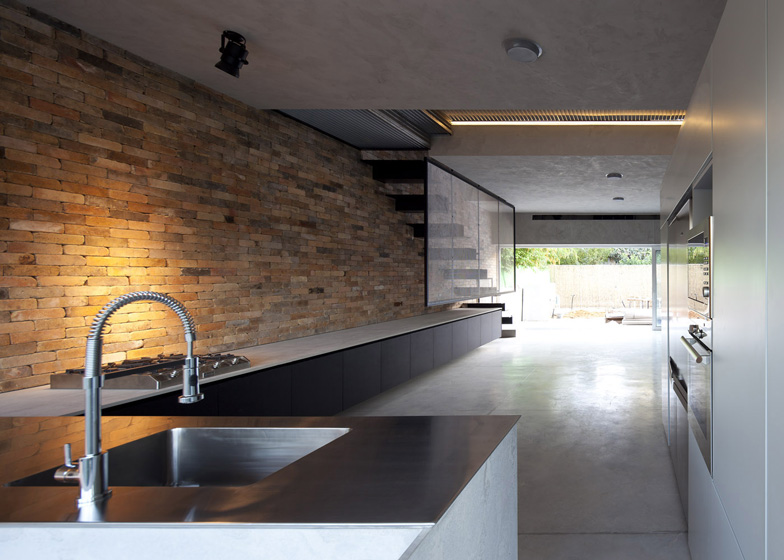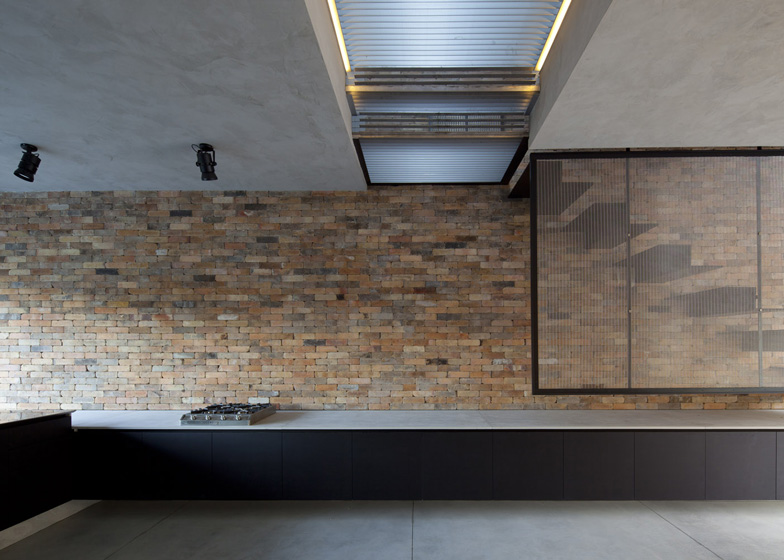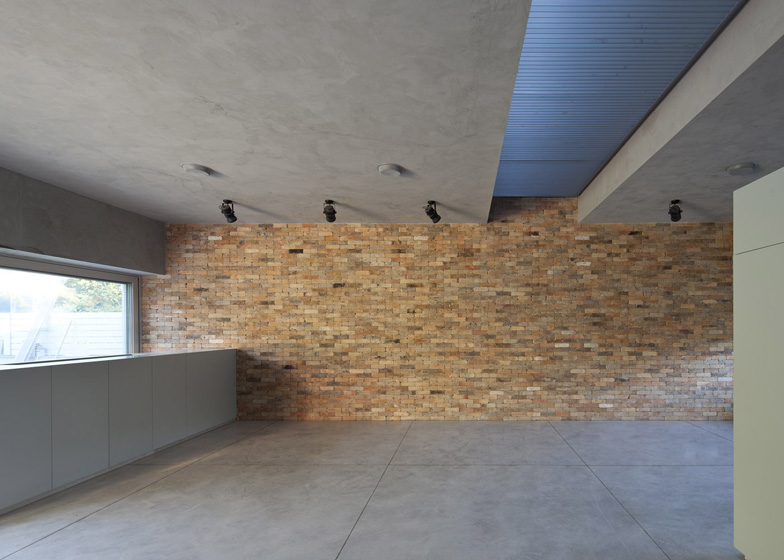Israeli studio Paritzki & Liani Architects has squeezed a house with an exposed brickwork interior into the space between two existing properties in Tel Aviv (+ slideshow).
"A new building almost 'not present' from the outside is generated," Paola Liani and Itai Paritzki told Dezeen. "We tried to reinvent what is not present in this particular context and zone of the city - creating an intimate, rich, deep space overlooking a small garden."
The constrained site prevented the architects from giving the building many windows, so they added a long narrow skylight across the width of the roof to bring light down into both the ground and first floors.
A first floor corridor lines up with this skylight and features a gridded metal floor that lets light filter through to the open-plan kitchen, living room and dining area below.
The metal floor also allows residents on the ground floor to see others coming in and out of bedrooms on the level above.
A staircase with cantilevered iron treads connects the two floors and climbs up the side of one of two exposed brick walls. "We invested in this material because it moves the walls and the light, in a codified, almost historical way," said the architects.
More gridded metal is mounted into rectangular frames to act as a semi-transparent screen for the staircase, taking the place of a balustrade.
Paola Liani and Itai Paritzki founded their studio in 2001 and have also designed a house beside the face of a cliff and an apartment with a PVC ceiling.
See more architecture in Israel »
Photography is by Amit Geron.
Here's some more information from the architects:
ZBL House | Paritzki & Liani Architects
The house is inserted in a series of row houses, not far from the university area in Tel Aviv. It is a pedestrian oasis composed of attached houses, only one story high, and filled with green areas. The building restrictions for that specific zone permit utmost a height of 4.5 m for the façade and 6.5 m for the roof top.
The idea of this residential volume situated between two walls and two strips of green is to design the space with the natural light, excluding any full-height subdivision or typological hierarchy; only by inserting two voids that trace the movements of the inhabitants.
Two shifted rectangular cutouts of light: the first, located in the center of the volume directs the light from the roof level to the ground level, which is lifted 90 cm above the pathway (kitchen, dining, living area). The second, located on the external border between the house, the pool and the garden, consents the creation of a second naturally illuminated court, on underground level.
Once entering the house, one perceives the visual depth between the different levels and micro gardens of Sambucus on ground floor.
The suspended passage (bridge) that leads to the night area on the first floor is a diaphragm made of metal net grid only 2 cm thick that assumes the value of a lightweight veil that refines the zenithal light while extending the silhouettes of who walks through it, "in order to see nothing but the sky".
Location: Tel Aviv, Israel
Total site area: 198 m2
Total floor area: 300 m²
Number of stories: 3
Status: Completed, 2012
Above: ground floor plan - click above for larger image and key
Above: first floor plan - click above for larger image and key
Above: long section

